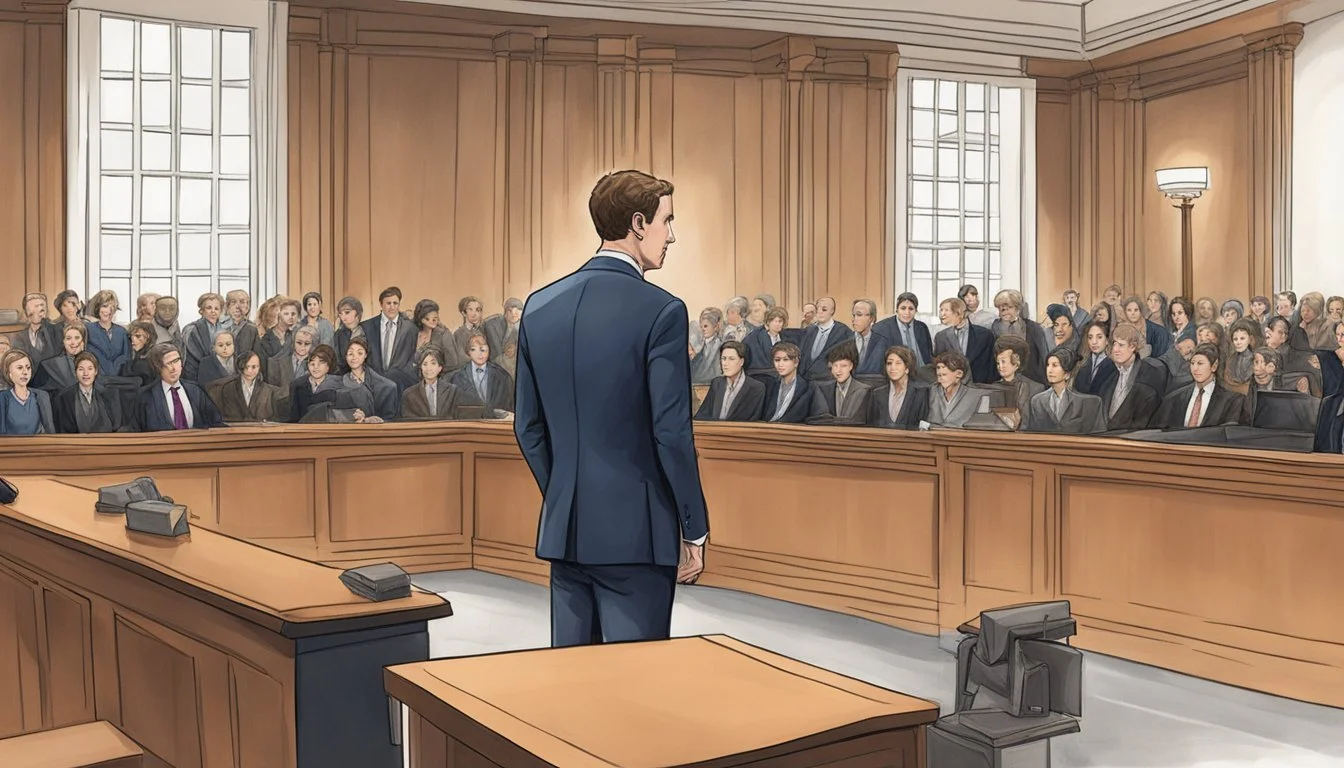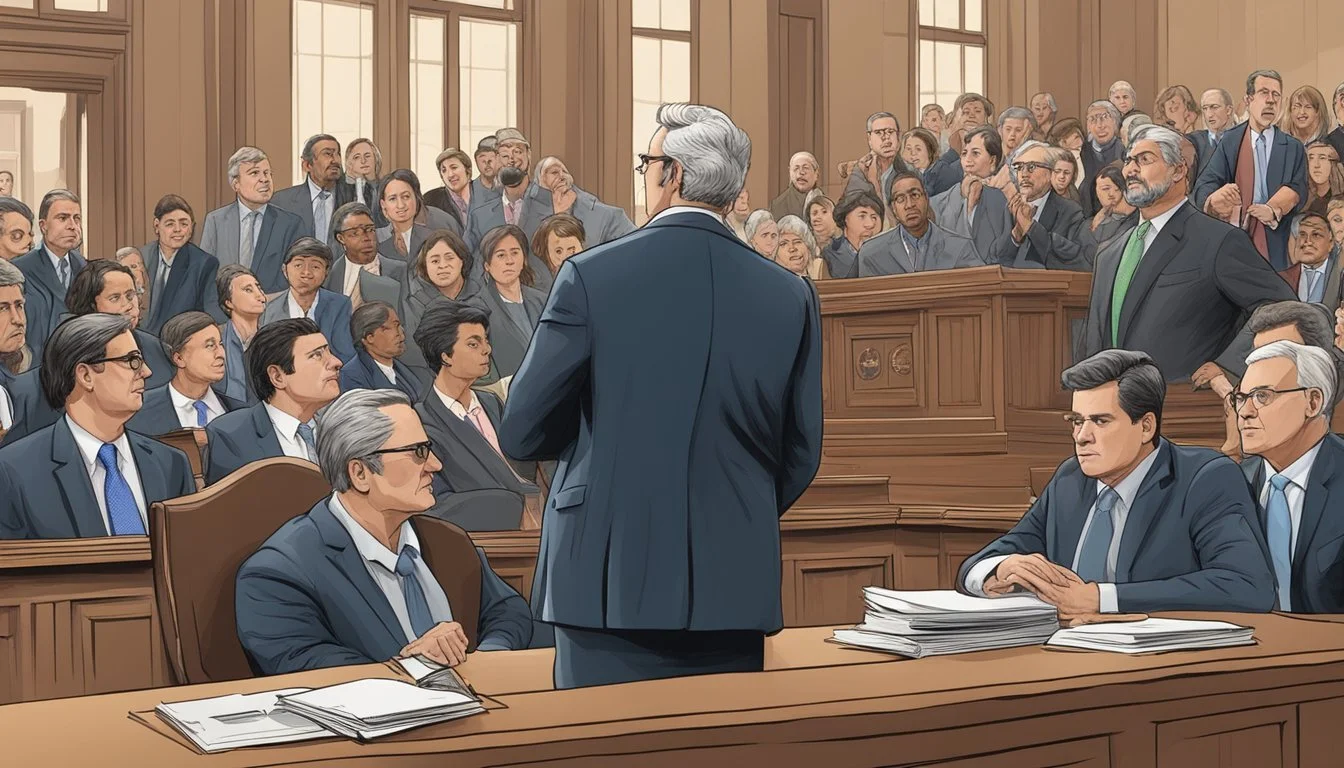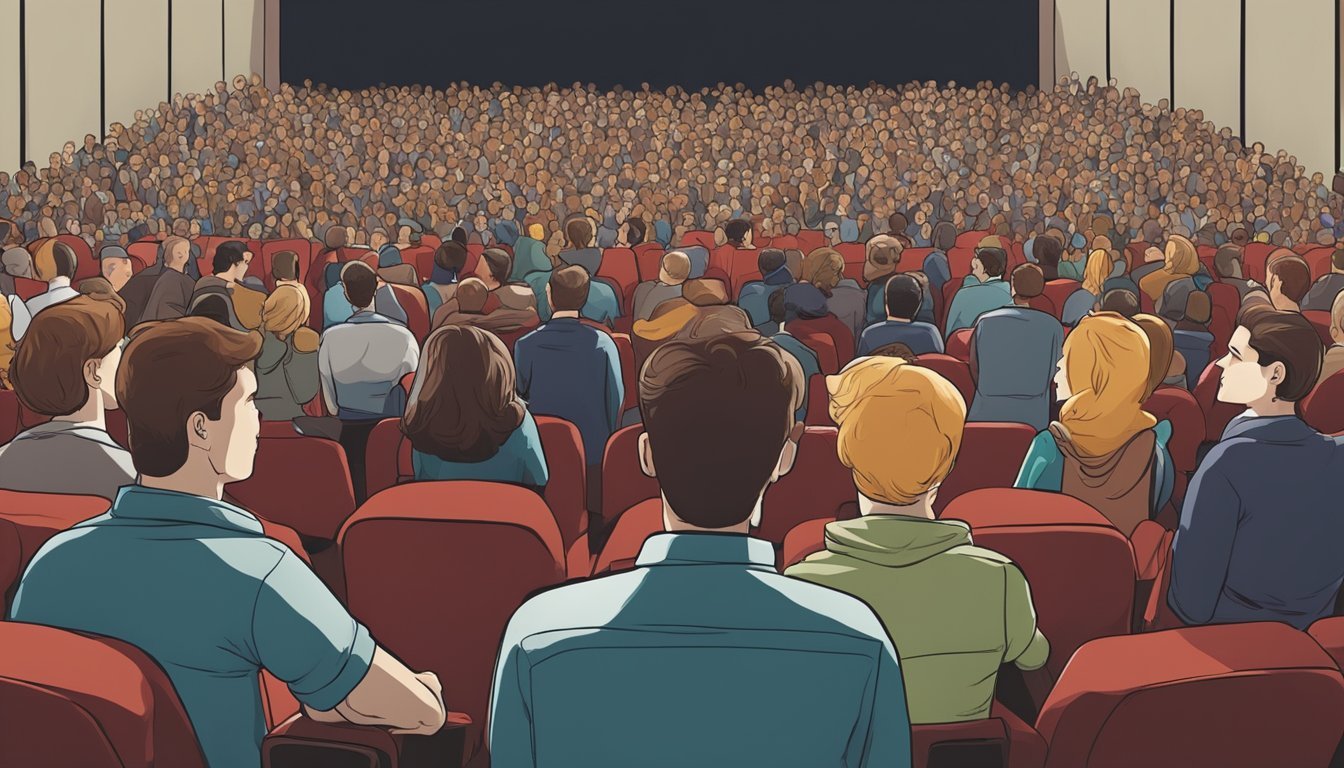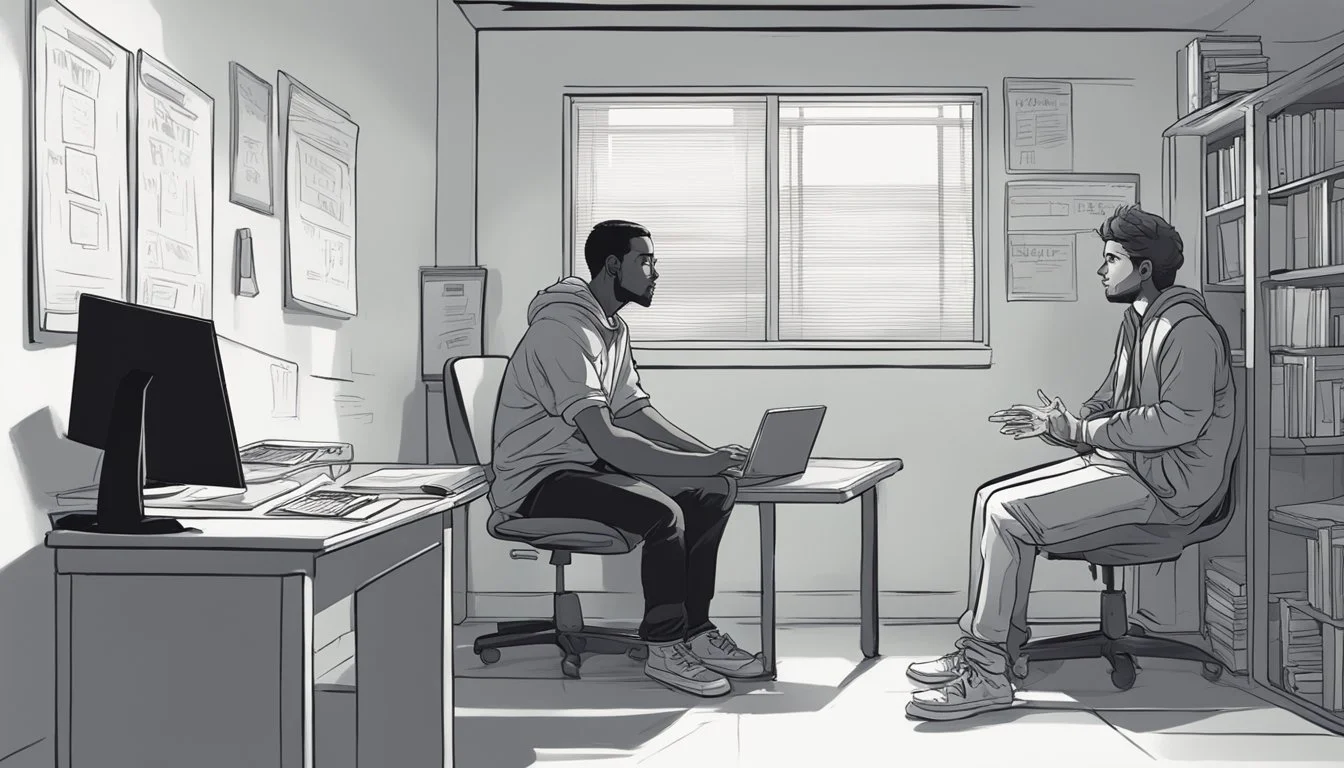Zuckerberg vs. 'The Social Network': Analysis of Accuracy and Myths
The film "The Social Network" captivated audiences with its dramatization of Facebook’s inception and the tumultuous relationship between its co-founders, Mark Zuckerberg and Eduardo Saverin. While the film succeeded in presenting an engaging narrative, it took significant liberties with the true story to heighten its appeal.
One of the major factual deviations involves the portrayal of Zuckerberg's personal life. The film suggests that the creation of Facebook was partly fueled by his desire to gain social status after being dumped by his girlfriend. In reality, Mark was already in a stable relationship with Priscilla Chan at the time, whom he met in 2003 and later married in 2012.
Moreover, the character of Eduardo Saverin is depicted as the tragic hero, overshadowed and betrayed by Zuckerberg for the benefit of the company. While Saverin did indeed play a substantial role in Facebook’s early funding, the film oversimplifies their complicated relationship and business disputes. This narrative framing contributes to a less nuanced understanding of the complex dynamics behind Facebook’s rise.
Overview of 'The Social Network'
The Social Network, directed by David Fincher and written by Aaron Sorkin, tackles the birth of Facebook and the conflicts among its founders. The film is known for its dramatic portrayal of key characters and significant cultural influence.
Plot Summary
The story primarily follows Mark Zuckerberg, played by Jesse Eisenberg, as he navigates the complex world of creating Facebook.
Starting as a Harvard undergraduate project, the film highlights Zuckerberg's tumultuous relationship with his friend and co-founder Eduardo Saverin.
Saverin, played by Andrew Garfield, initially funds the venture but finds himself edged out as Facebook grows, especially after Sean Parker (Justin Timberlake) enters the scene. Parker’s involvement marks a turning point, altering the dynamics and accelerating Facebook's expansion.
Cultural Impact
The Social Network was highly acclaimed, earning accolades from critics and numerous awards. David Fincher's direction and Aaron Sorkin's screenplay received praise for their compelling storytelling.
The film didn't just entertain; it prompted discussions about social media’s role in society and the ethical dilemmas surrounding its creation. It dramatized real events in a way that sparked debates over its historical accuracy, particularly in depicting Zuckerberg's character and the founding of Facebook.
The movie remains influential, reflecting broader societal concerns about technology, ethics, and personal dynamics in the digital age.
Zuckerberg's Background and Facebook's Origin
Mark Zuckerberg’s tenure at Harvard University was marked by innovation and controversy, which set the stage for the creation of Facebook. His relationship with Eduardo Saverin and the launch of Facemash were pivotal events.
Harvard Beginnings
Mark Zuckerberg enrolled at Harvard University in 2002. Notably interested in computer science, he quickly became known for his exceptional programming skills. Facemash, a "hot or not" type website he created during his sophomore year, brought him both fame and trouble. The platform, which allowed users to rate the attractiveness of fellow students, was shut down by the university administration due to privacy issues and complaints from students.
This incident showcased his technical prowess and foreshadowed the revolutionary impact he would have with Facebook. Furthermore, it also highlighted early tensions with university authorities and concerns about privacy that would follow him into Facebook’s future.
Creation of Facebook
In early 2004, Zuckerberg launched TheFacebook from his dormitory, initially restricted to Harvard students. The platform's uniqueness lay in its user profiles and social connectivity. Just six days after the site launched, it went viral within the campus.
The idea quickly expanded beyond Harvard, with new users signing up from other Ivy League schools. Unlike other social networks at the time, TheFacebook required the .edu email addresses, adding a layer of exclusivity and trust. This early growth attracted the attention of several investors, including the controversial figure, Sean Parker.
Eduardo Saverin's Role
Eduardo Saverin played a crucial role in Facebook's inception. As a close friend and business partner of Zuckerberg, Saverin provided the initial funding needed to get TheFacebook off the ground. He invested $1,000 in startup capital, which was vital for the website’s early development.
However, as the company grew, Saverin's relationship with Zuckerberg deteriorated. The film "The Social Network" portrays Saverin as the victim in the legal battles that ensued. In reality, Saverin filed a lawsuit against Facebook after being diluted out of his shares, leading to a settlement that granted him an undisclosed amount and recognition as a co-founder.
Factual Accuracy
The portrayal of characters, significant events, and the timeline of Facebook's creation in "The Social Network" often deviate from the real-life occurrences. This section details these disparities to paint a clearer picture of what the film got right and wrong.
Character Portrayals
Mark Zuckerberg: Jesse Eisenberg's portrayal of Zuckerberg emphasizes his introverted and intensely focused persona, but the film amplifies his social ineptitude and ethical ambiguity. In reality, while Zuckerberg is certainly driven and private, many who know him describe him as more nuanced and personable than shown.
Eduardo Saverin: Andrew Garfield's Eduardo Saverin is depicted as an unwitting victim betrayed by Zuckerberg. This characterization simplifies their complex partnership. It is true Saverin's stake was diluted, but the legal complexities and business missteps on both sides play down the nuances of their conflict.
Sean Parker: Justin Timberlake's Sean Parker is presented as a charismatic, savvy yet ultimately destabilizing influence. Parker himself has stated that while his energy and ambition are captured, his character in the film is overly dramatized.
Winklevoss Twins: Armie Hammer’s depiction of Cameron and Tyler Winklevoss shows them as elite, competitive rowers who accuse Zuckerberg of stealing their idea. This is largely accurate, though the film does not delve deeply into the intricacies of their legal battle, which ultimately resulted in a significant settlement.
Major Events
Founding of Facebook: The film shows Zuckerberg creating TheFacebook in response to a breakup. While the timing is exaggerated for dramatic effect, the actual coding and launch did happen swiftly during Zuckerberg’s time at Harvard.
Saverin’s Lawsuit: The depiction of Saverin's lawsuit against Zuckerberg is based on real legal disputes, although the depth of their friendship and business disagreements is slightly simplified. The reality involved more negotiations and complexities than a straightforward betrayal.
Introduction of Venture Capital: The involvement of venture capital firms and Parker's role in attracting investment are accurate. Parker's early advice and connections were instrumental in scaling Facebook, although his departure from Facebook was more amicable than the film suggests.
Timeline and Narrative
Creation Timeline: The rapid development and early success of Facebook are well-represented in the film, although some events are condensed or reordered for storytelling purposes. For instance, the timeline between college and major investments was more drawn out in reality.
Harvard Lawsuits: Multiple lawsuits, including the Winklevoss’s legal battle, are collapsed for brevity. While these lawsuits did coincide with Facebook's early days, the film omits many procedural details and settlements that occurred over years.
Venture Capital Funding: The film captures the pivotal moments of securing venture capital funding, but the narrative simplifies how these deals were brokered. The real process involved more negotiations and strategic planning.
The film creatively condenses and dramatizes real events, providing an engaging narrative while sometimes sacrificing strict factual accuracy.
Portrayals of Relationships and Interpersonal Dynamics
"The Social Network" paints a complex picture of interpersonal relationships, emphasizing both the bonds and betrayals that shaped Facebook's early days. Two key relationships stand out: the friendship between Mark Zuckerberg and Eduardo Saverin, and the association between Zuckerberg and Sean Parker.
Zuckerberg and Saverin Friendship
Mark Zuckerberg and Eduardo Saverin began as close friends who co-founded Facebook together at Harvard. Eduardo provided initial funding, deeply investing both emotionally and financially.
The film highlights Eduardo's growing frustration as he feels increasingly sidelined by Zuckerberg's decisions. Their friendship deteriorates when Zuckerberg, influenced by Parker, allows Saverin to be diluted out of his shares in a pivotal, heartbreaking scene. This act of betrayal is portrayed as a significant emotional turning point for both characters.
Saverin's role in the company's early success is starkly contrasted with the eventual legal battles they face. The film underscores the mix of personal and professional conflicts, shedding light on how business decisions can strain and ultimately break even the closest of friendships.
Zuckerberg and Parker Association
Sean Parker, co-founder of Napster, enters Zuckerberg's life as a charismatic yet controversial figure. Parker's vision for Facebook aligns with Zuckerberg's ambitions, making him an influential mentor.
The movie shows how Parker's arrival shifts the company's trajectory, bringing both innovation and internal conflict. Parker's influence helps secure significant venture capital but simultaneously fosters a rift between Zuckerberg and Saverin.
Parker's hedonistic lifestyle and eventual arrest serve as cautionary elements, highlighting the volatility that accompanies rapid success. Despite his contributions, Parker's partnership with Zuckerberg is depicted as a double-edged sword, blending genius with recklessness.
The film portrays their relationship as pivotal in Facebook's evolution, encapsulating the intense dynamics often found in high-stakes entrepreneurial environments.
Responses to the Film
The release of "The Social Network" prompted varied reactions from Mark Zuckerberg, Facebook, and tech insiders. Their responses reveal differing perspectives on the film's portrayal.
Mark Zuckerberg's Reaction
Mark Zuckerberg expressed mixed feelings about "The Social Network."
He appreciated the craftsmanship behind the movie but criticized its factual accuracy. Zuckerberg pointed out that many events, particularly the timeline and personal behaviors, were fictionalized.
He dismissed the central narrative, arguing that it misrepresented his motivations. Zuckerberg clarified that Facebook was never about social status or winning a girl, contrary to what the film suggests.
Facebook's Official Response
Facebook maintained a careful stance on the issue.
The company acknowledged the film's entertaining qualities but echoed Zuckerberg's critique regarding its inaccuracies. They emphasized that the depiction of Facebook's founding was dramatized for cinematic purposes.
Facebook also highlighted the collaborative and innovative efforts of its early team, which they felt the movie downplayed. The official response aimed to protect the company’s image and clarify misconceptions.
Critique by Tech Insiders
Tech insiders had diverse opinions about "The Social Network," ranging from skepticism to praise.
Some insiders criticized the film for sensationalizing events and prioritizing drama over truth. They noted inaccuracies in the portrayal of the culture of Silicon Valley during Facebook’s early years.
Others appreciated the movie for bringing tech entrepreneurship into the public eye. Aaron Sorkin's script received acclaim for its sharp dialogue and engaging narrative, even if the accuracy was questioned.
Tech voices, particularly from Silicon Valley, generally agreed that while the film was entertaining, it shouldn't be seen as a historical record.
Cinematic Elements of 'The Social Network'
The film 'The Social Network' combines masterful direction and stunning cinematography with an evocative score and soundtrack to enhance its narrative. These elements play a critical role in shaping the viewer's perception of the story and characters.
Direction and Cinematography
David Fincher's direction is meticulous, emphasizing precision in every scene. Fincher's use of dim lighting and a cool color palette enhances the film's tone, suggesting a sense of detachment and isolation.
Jeff Cronenweth's cinematography supports this vision, utilizing tight framing and calculated camera movements to heighten the tension. The film's visual style is integral to its storytelling, with every shot contributing to the narrative's mood and pacing.
Attention to detail is evident in scenes like the opening sequence at the bar, where rapid cuts and close-ups between Mark Zuckerberg and Erica Albright create an immediate sense of urgency and conflict.
Score and Soundtrack
The score, composed by Trent Reznor and Atticus Ross, won an Oscar for its innovative use of electronic music. The soundtrack's pulsating rhythms and ambient tones create an atmosphere of unease and tension, reflecting Zuckerberg's ambition and the chaotic rise of Facebook.
Iconic tracks, such as "Hand Covers Bruise," further immerse the audience, blending seamlessly with the film's visuals. Reznor and Ross's composition not only enhances emotional resonance but also serves as an auditory symbol of the film's themes.
The choice of music also strategically underscores pivotal moments, such as the Harvard rowing race, where the classical track "In the Hall of the Mountain King" juxtaposes the modern storyline with a timeless sense of competition and determination.
Legacy and Lasting Relevance
"The Social Network" continues to influence how people perceive Mark Zuckerberg and the creation of Facebook. Its impact extends beyond the film industry into social media, technology, and broader cultural discussions.
Influence on Popular Culture
"The Social Network," directed by David Fincher, has carved out a significant place in popular culture. The film's portrayal of Zuckerberg as a complex, ambitious college student at Harvard captivated audiences. The score by Trent Reznor and Atticus Ross became iconic, winning numerous awards and setting a new standard for film music. David Fincher's directing and the screenplay by Aaron Sorkin drew widespread acclaim for their sharp, dramatic storytelling.
The term "Facebook movie" has entered the cultural lexicon, often used to reference tech-centric biographical dramas. The introduction of characters like Sean Parker, played by Justin Timberlake, also brought a spotlight to lesser-known figures in the tech industry. This Hollywood portrayal has influenced other films and series that focus on the tech world, showing its far-reaching impact on popular culture.
Impact on Real-World Perceptions
The film dramatized key events and disputes, particularly the contentious relationship between Zuckerberg and Eduardo Saverin. It depicted Zuckerberg in a way that many found compelling but ultimately fictionalized. This portrayal has fueled ongoing debates about the accuracy of the film and who the real 'victims' and 'villains' were in the Facebook saga.
Zuckerberg himself has commented on the film, calling it both fictional and hurtful. Despite these protests, the narrative presented in "The Social Network" shapes public perceptions of Zuckerberg.
The dramatization of Harvard's elite setting and the world of social media startups impacted how people viewed tech entrepreneurs. The film's legacy lies in its ability to spark discussions about ethics, ambition, and the consequences of technological advancements.






